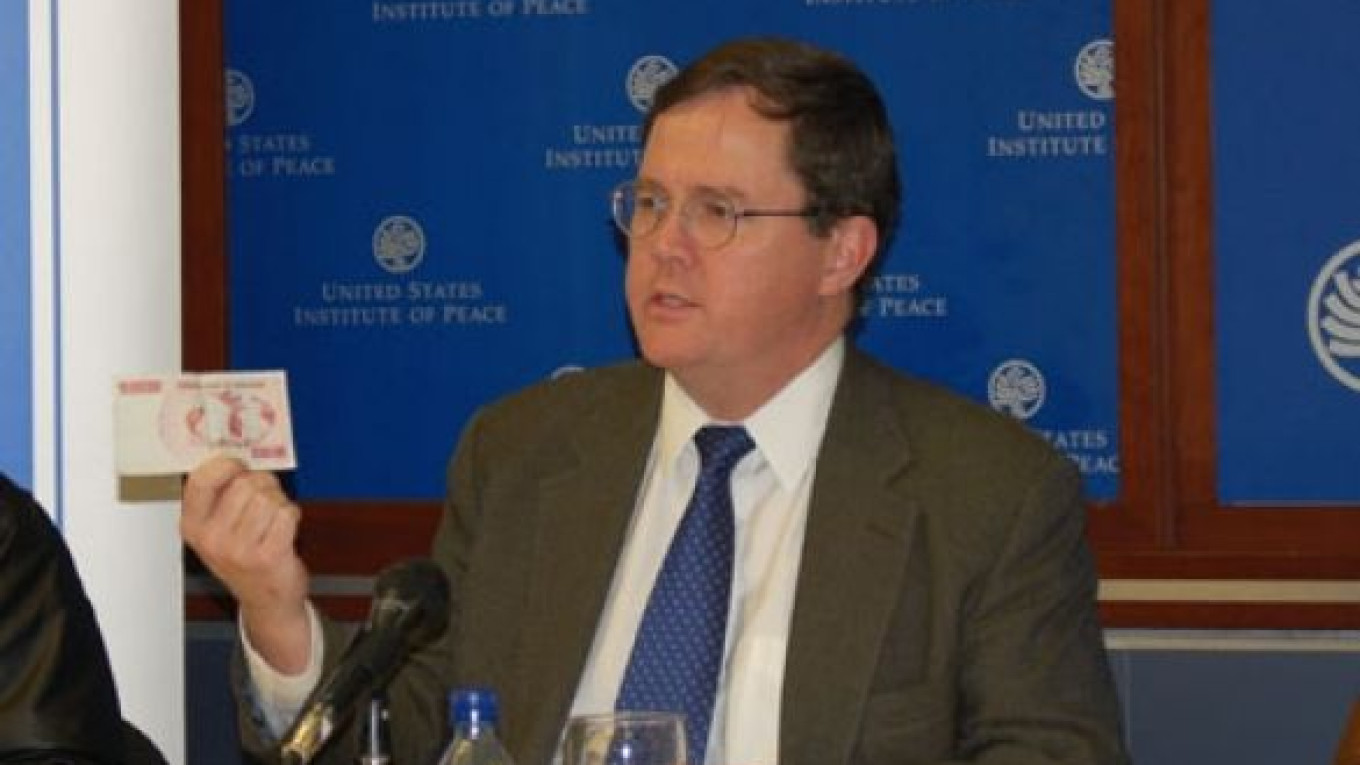Washington has effectively ended a key working group with Moscow for discussing human rights and democracy, arguing that the panel had become meaningless given recent restrictions on civil society in Russia.
The United States' withdrawal from the Civil Society Working Group of the U.S.-Russia Bilateral Presidential Commission, announced Friday, marks the first instance of diplomatic retaliation from U.S. President Barack Obama's administration since Vladimir Putin's return to the presidency last year.
But commentators said over the weekend that it was mostly a symbolic move since that group could hardly achieve much under the different political circumstances in Moscow.
Thomas Melia, the group's American co-chair, said in an e-mailed statement Friday that the U.S. was withdrawing because "recent steps taken by the Russian government to impose restrictions on civil society … called into serious question whether maintaining that mechanism was either useful or appropriate."
State Department spokeswoman Victoria Nuland told reporters in Washington that "the working group was not working" and that it "was not advancing the cause of civil society in Russia," according to a transcript posted online.
Although U.S. officials did not publicly specify which restrictions they meant, it was clear that they referred to the string of laws passed in the past six months that punish oppositional activity, for example, the criminalization of libel and an expansion of the definition of treason.
Moscow has severely irritated Washington last fall by forcing the closure of key U.S. nongovernmental organizations in the country, first and foremost USAID.
Officials from the Obama administration have publicly expressed dismay at new limitations for NGOs, which have to label themselves a “foreign agent” if they accept foreign funding and are engaged in political activities. A bill signed by Putin in December also prohibits NGOs from employing U.S. citizens on Russian soil.
That bill also bans Americans from adopting Russian children. It was drafted by the State Duma in reaction to the U.S. Magnitsky Act, which imposes sanctions on Russians implicated in human rights violations.
Relations between Washington and Moscow deteriorated significantly over the Magnitsky Act, which Obama tried to prevent but eventually signed due to its overwhelming support in Congress.
The working group was set up in 2009 as part of the reset in bilateral relations proposed by the Obama administration.
It was first co-chaired by Michael McFaul, then the White House’s point man on Russia, and Vladislav Surkov, then the Kremlin’s top domestic policy official.
When McFaul became U.S. ambassador to Moscow in January 2012 and Surkov transferred to the government, the joint chairmanship was taken over by Melia, who is a deputy assistant secretary for state overseeing democracy and human rights, and the Foreign Ministry’s human rights commissioner Konstantin Dolgov.
Earlier this week, Dolgov published an article in which he rebutted U.S. criticism of the adoptions ban and accused the United States of tolerating corrupt international rings of child traders.
It was unclear over the weekend whether the withdrawal was directly related to Dolgov’s article.
Dolgov told Interfax that U.S. officials had informed him about the withdrawal and that the ministry was now waiting for a written notice.
Kremlin spokesman Dmitry Peskov on Friday said Washington’s withdrawal was regrettable. “It is a pity whenever a bilateral activity is abolished without replacement,” he told Interfax.
But the working group’s Web page had already been taken down from the State Department’s website Friday.
The last cached version available lists only a single event: a software training program to combat child pornography, held with law enforcement officers at the U.S. Embassy, presumably in July 2011.
Melia said the working group’s subgroups on migration, prison reform, child protection and anti-corruption measures may be addressed through other working groups “and/or established channels.”
The Bilateral Presidential Commission consists of 18 working groups ranging from health and environment to defense and energy.
Both Melia and Nuland stressed that the U.S. would continue to speak to the government about human rights and democracy and support civic groups in Russia. “Our commitment to engage Russian civil society … remains unwavering,” Melia said.
“We would rather direct our efforts in other ways and continue to work on our direct support for civil society organizations who want to work with us,” Nuland said.
Some in the country’s pro-Western opposition welcomed the decision. Boris Nemtsov, the co-leader of the “Republican Party – Party of People’s Freedom,” said the U.S. withdrawal was overdue.
“To set up such a group with Surkov — the persecutor of dissidents, election falsifier and censor — was hypocrisy and a shame,” he told Kommersant.
Contact the author at n.twickel@imedia.ru
Related articles:
A Message from The Moscow Times:
Dear readers,
We are facing unprecedented challenges. Russia's Prosecutor General's Office has designated The Moscow Times as an "undesirable" organization, criminalizing our work and putting our staff at risk of prosecution. This follows our earlier unjust labeling as a "foreign agent."
These actions are direct attempts to silence independent journalism in Russia. The authorities claim our work "discredits the decisions of the Russian leadership." We see things differently: we strive to provide accurate, unbiased reporting on Russia.
We, the journalists of The Moscow Times, refuse to be silenced. But to continue our work, we need your help.
Your support, no matter how small, makes a world of difference. If you can, please support us monthly starting from just $2. It's quick to set up, and every contribution makes a significant impact.
By supporting The Moscow Times, you're defending open, independent journalism in the face of repression. Thank you for standing with us.
Remind me later.


